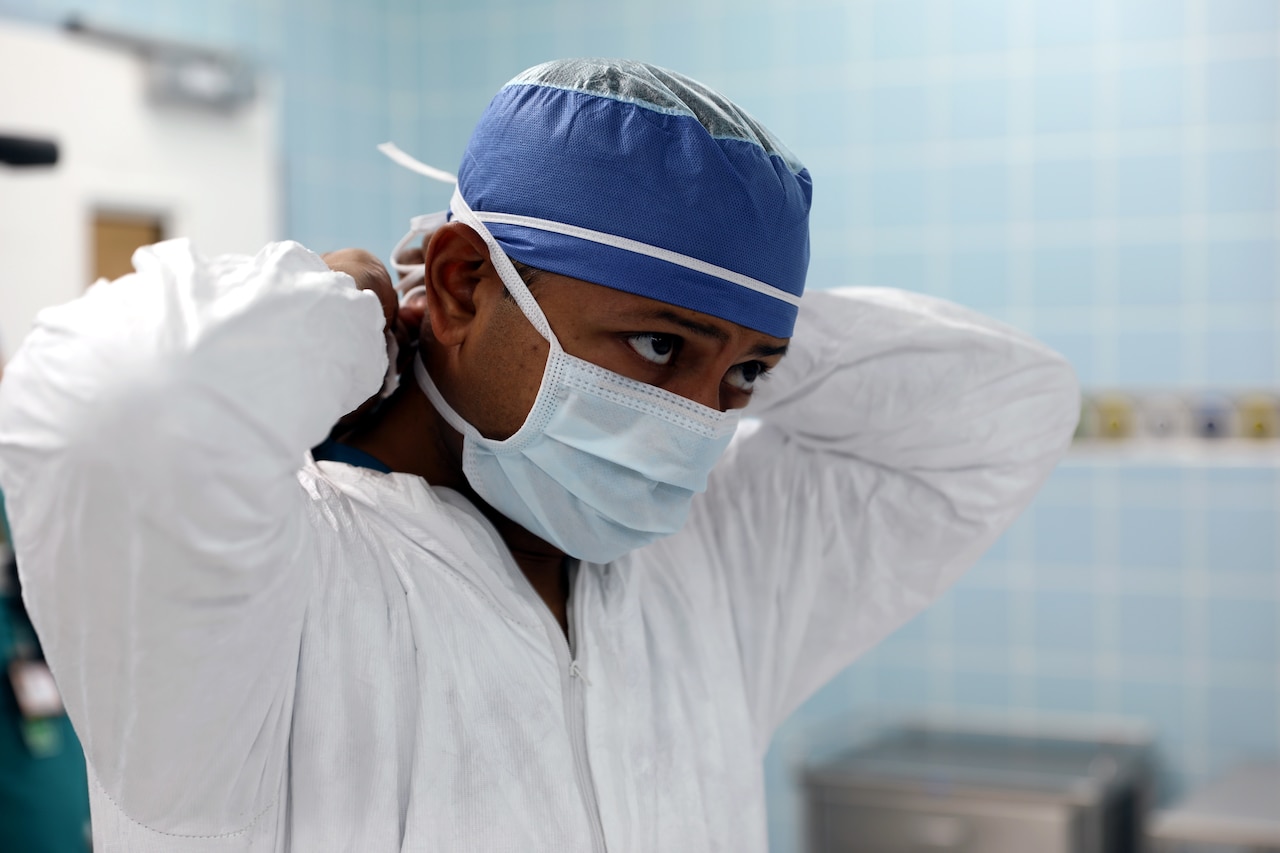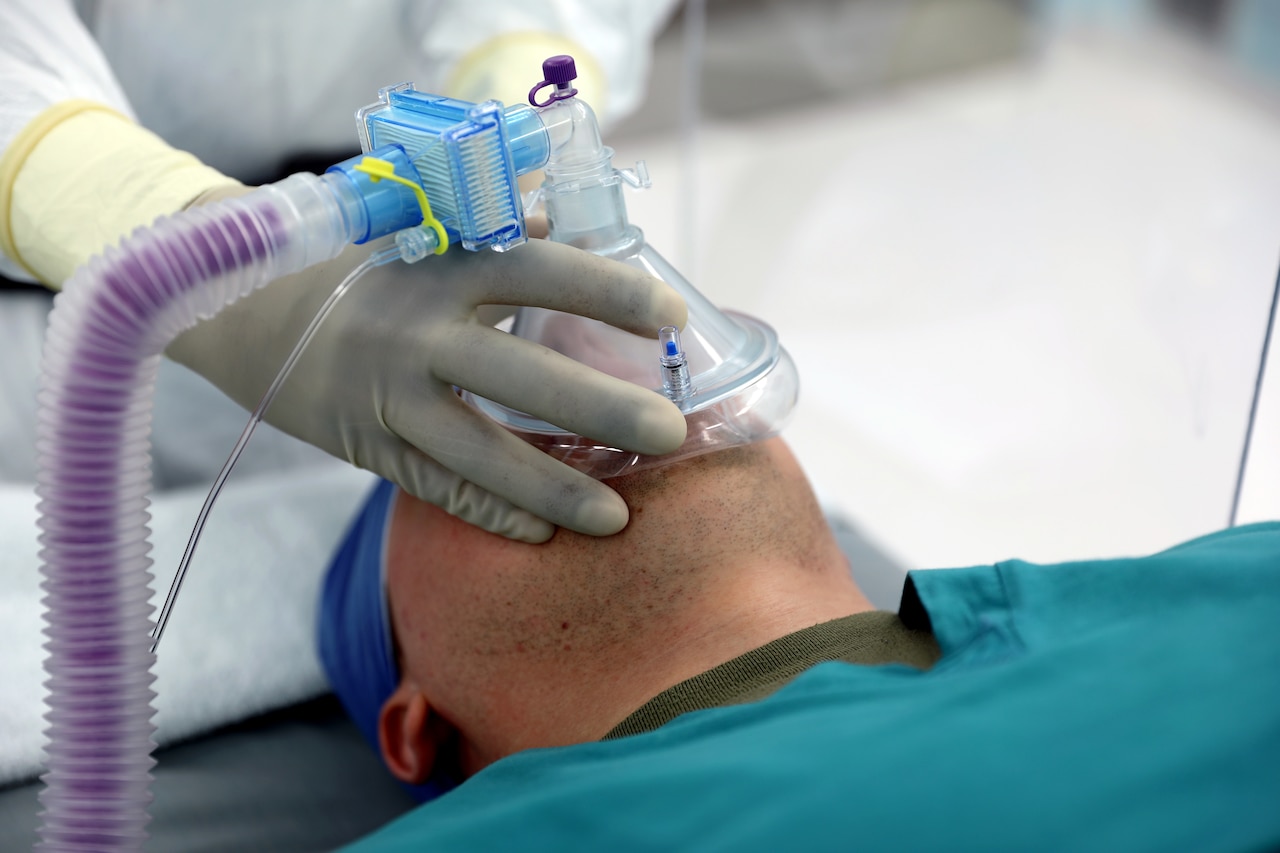Aug. 31, 2020 |
Army Maj. (Dr.) Neel Shah admits there is a preconceived notion about his job.
"Most people think it's just putting patients to sleep for surgery, but it is so much more than that," Shah said, an anesthesiologist at Landstuhl Regional Medical Center, Germany. "We are the physicians whose job it is to keep you alive, so you can undergo whatever procedure you need. We study diseases and how they will affect a patient before, during and after surgery and try to decrease any risks associated with them."
Shah, originally from Nashua, New Hampshire, joined the Army after an opportunity to perform an observership at Walter Reed National Military Medical Center.

"I saw doctors, nurses and other health professionals working tirelessly on wounded soldiers, sailors and airmen to get them safely back to their friends, families and battle buddies," Shah said. "It was a team that I wanted to be a part of, where I felt that I could contribute."
Shah, who joined the Army in 2009 when he started medical school, helps make sure the patient is optimized for their procedure before they ever set foot in an operating room.
"We meet with them before surgery to make sure that all of their other medical conditions are under control and ensure that the risk of surgery is not too great for them," Shah said. "Then in the operating room and after surgery, we make sure to execute an anesthetic plan that is perfect for that patient so that they can make it home safely to their families."
Shah's job, like most people's, has been affected by the COVID-19 pandemic.
"The biggest problem for anesthesiologists and our certified registered nurse anesthetist colleagues is that we work every day on the parts of your body that shed the most virus — your nose, mouth and windpipe — and this puts us at significant risk for contracting COVID-19 from an infected patient," he said. "Worldwide, emergency room doctors and anesthesiologists are at the highest risk of contracting COVID-19 because we manage patient airways when they are the most ill. Because of this, we have had to use special protective equipment and protocols designed to minimize this risk. Luckily, here at LRMC, we have the equipment to keep us safe while managing these patients."
Despite the nature of his work, Shah is usually upbeat about it.

"Although I love all the procedures I do in my work, my favorite part of this job is the team-based model of the operating room," Shah said. "I come to work every day and ensure my patients have a safe and successful surgery with an incredible team of surgeons, nurses and anesthesia colleagues."
Shah added that his patients make his job equally rewarding.
"They are the best patients that any doctor could ask for, because they are focused on one goal — to get back to the fight and support their teams," Shah said. "When you have patients like that, it makes the job that much more satisfying."
Landstuhl Regional Medical Center, is the largest American hospital outside of the U.S. and the only American level III trauma center overseas.
Regional Health Command Europe is responsible for the health care, public health, dental and veterinary services for Soldiers, their families and Defense Department beneficiaries throughout Europe.
(Russell Toof is assigned to Regional Health Command Europe).








No comments:
Post a Comment